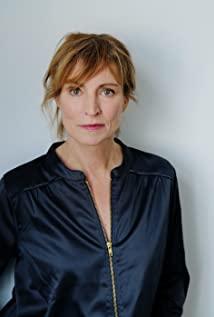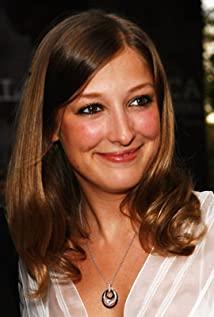In 2006, as soon as she got home on a weekday evening, she smashed her piggy bank and borrowed some money from her best friend, but she didn't want to explain the reason, she just rushed out the door and ran to the bookstore anxiously.
At that time, in small cities, unlike 24-hour bookstores, Kindles were not popular, and it may be said that it was the last few years when people took reading books and newspapers as a habit.
One day that year, I suddenly received a notice that everyone would donate three books to set up a reading corner.
She thought about it for a long time all the way home, but couldn't find a serious reading book to donate, so she spent all her savings and even borrowed money, went to a bookstore to find a few "famous books", made a mark that she had read, and let the book Appears a little older.
Without reading a single page carefully, she donated them.
When I first saw The Reader, I thought it would be two or three separate stories, and the director seemed to deliberately let the adult version played by Ralph be called Mr berg, while the younger version was always called Michael. People confuse what appears to be two characters.
Everyone has a secret in their hearts, and that's the case with Kate's Hannah, a very ordinary low-class working woman: illiterate and old, but unlike the equally illiterate low-class people, her strong self-esteem is not willing to Let anyone know about her shameful lack of culture.
Therefore, her only curiosity and question to Michael was what he learned in campus life; she would ask him to read those stories, frowning with curiosity and doubt, but never glanced at the book; she did not ask Michael's name, birthday , deliberately keeping strangers at a distance; she feels that their relationship is the kind of tight and dark, dark in a narrow room, but does not grow; she hesitates when Michael asks to go out, when looking at the menu Panic; after working hard, I got the news that I can be promoted to the office and decided to resign and leave, and the way to say goodbye to Michael is to carefully wipe his body: he is just a Kid, and he will have a new body and life.
This is a woman's self-esteem. It has nothing to do with love, but in everything. It is easy to imagine her life trajectory that is not shown in the movie. Outside of work, she is staying at home, keeping the unknown the secret.
"Miss Schmitz, you're familiar with this book?"
"Yes"
It is precisely because of her illiterate, simple job, and no social life that she is naive, dull, and honest. Yes, she has the most pristine honesty, except when it touches on the shame about the culture deep inside her, she would rather be wrongly convicted and go to jail than admit she is illiterate, and she is the most honest about any other question the judge asks that person.
"Why didn't you unlock the doors?"
“For the obvious reason, We couldn’t…We are guards, our job was to guard the prisoners, we couldn’t let them escape”
She is such a stubborn and almost rigid woman. She doesn't understand flexibility and laws, and she doesn't even know how to argue in her own favor. Her job is to be a ticket inspector, so she checks tickets in a safe manner, and as a guard, she obeys orders and does not let her Anyone leave. Countless similar moral dilemmas have played out throughout the ages: If a person commits a crime out of ignorance, how should we judge?
The professor's words foreshadowed Hanna's sentencing and also indicated the judgment standard of the trial: "Societies think they operate by something called morality, but they don't. They operate by something called law. You are not guilty of anything merely by working. at Auschwitz…To prove murder, you have to prove intene (Society thinks itself is sustained by morals, but it is not, it is the law that sustains society. Just working in Auschwitz is not sinful…Only a motive can prove Murder established"
She was sentenced to life in prison for the shame of her unwillingness to put the label of illiteracy in public. Twenty years of prison life has made her close to numbness. Once her eyes were only confused, but now they are full of desolation and numbness.
The only ray of hope was willing to read the audio that Michael berg sent her, and she began to learn the alphabet, the signature that used to be scribbled and skipped, and now she writes carefully, stroke by stroke.
Even, she sent him countless letters, but there was no reply, just a recording of the reading.
until she was about to get out of prison.
What would it be like to leave a prison for a woman who is old, knows only a few words, has no social skills or even worked as a clerk in Auschwitz? Needless to say, it would be like the librarian in The Shawshank Redemption who never got out of prison: swept up in the world—out of place—abandoned by the world.
And her only salvation is Michael, I think, from the beginning when she left him, she didn't really love this Kid, but in those time in prison listening to the reading, she loved him, and once a woman fell in love A man, especially a woman like Hanna, can only have more self-esteem.
"You've grown up, kid."
"I've got a friend who's a tailor. He'll give ua job. And I've found you somewhere to live. It's a nice place. Quite small, but it's nice"
Almost as soon as I heard Michael's words, I had a hunch that what greeted Hanna was not the new life out of the cage, but the death.
For her, death is not a terrible thing, her last hope is Michael, but Michael gave her only alms-the last light disappeared.
In fact, he could talk to her about anything, about the past, about his life, about feelings, etc., but he was talking about the future—to a woman who was old and unskilled.
Hanna's most shameful secret is about culture, and Michael's most shameful secret is about their relationship.
When he was young, he was not afraid to make it public at all, he would kiss her in front of others when others said they were mother and son, but after she left without saying goodbye, he lost the ability to love.
Afterwards, he got insight into the most shameful secret in her heart. She was the executioner who helped the Nazis kill in Auschwitz. With such an identity, it was difficult for him to disclose this past relationship to the public.
Self-esteem, shame, secrecy, retreat, cowardice... About those complex and deep corners of the human heart, it is too embarrassing to speak out. This film brings me more the depths of the human heart than the human nature.
As for her in 2006, books were scattered all over her home after she became financially independent. I helped my little sister move her house once, and I witnessed what a huge project it was. She is almost thirty, unmarried, has no boyfriend, saved some money, and went to another country to continue her studies not long ago.
I don't know why, but after watching this movie, I remembered this story.
View more about The Reader reviews











